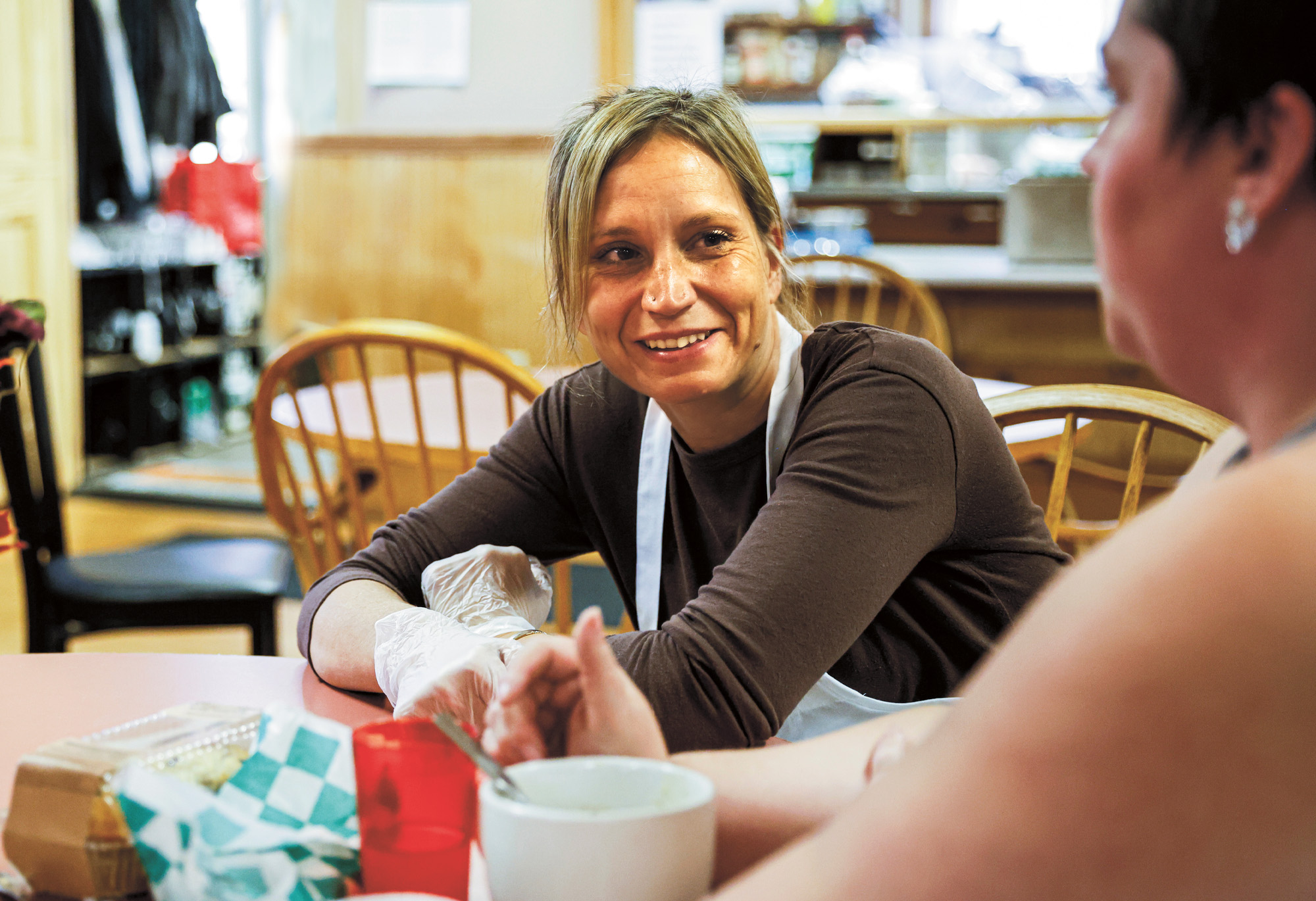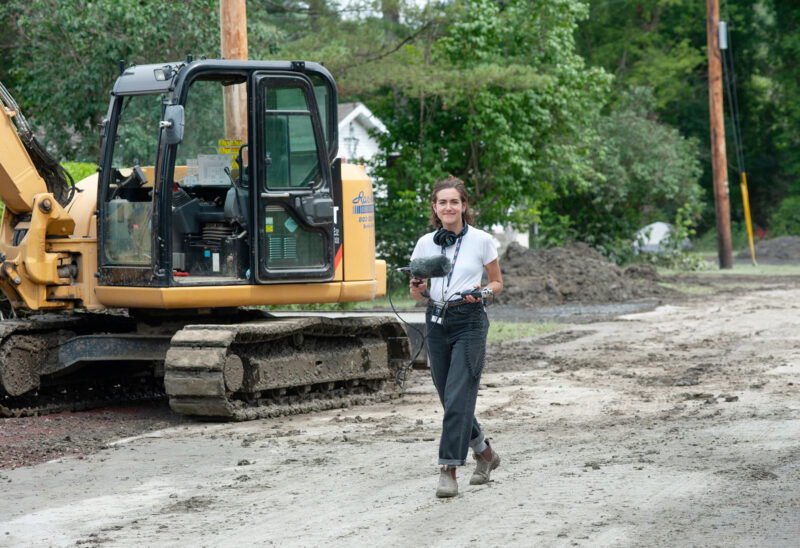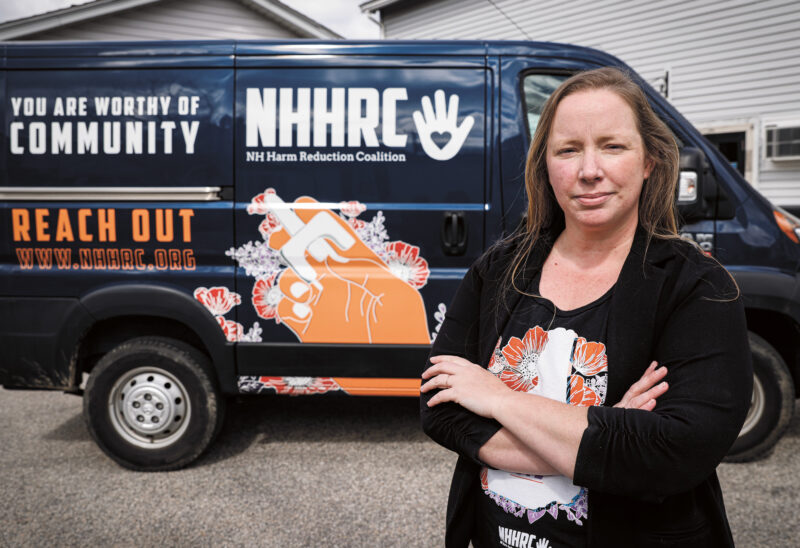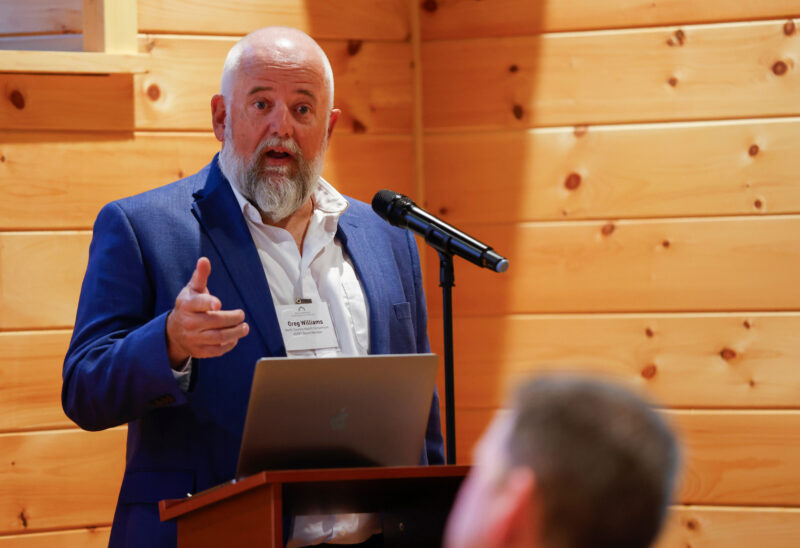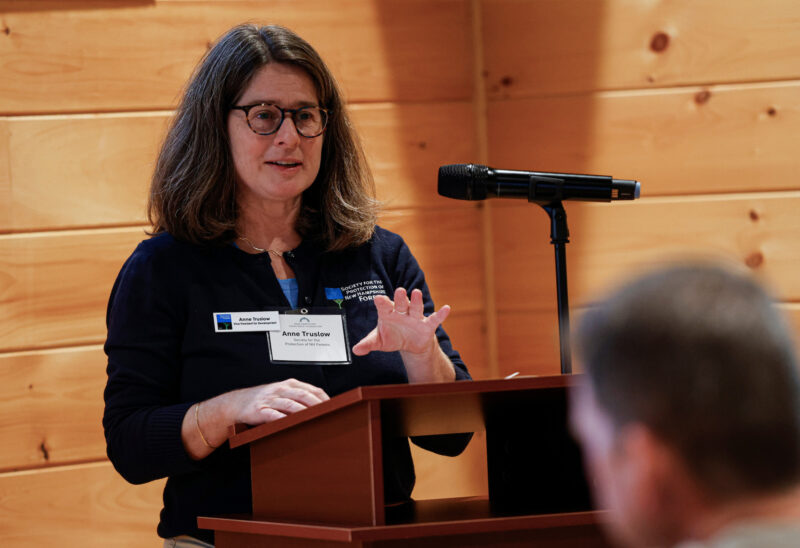Take a walk through New Hampshire Town A. Downtown is humming, merchants doing a brisk trade in luxury goods, espresso machines hissing out a river of gourmet coffee. The median household income here tops $100,000. Less than five percent of students drop out of high school, and just 11 percent of children in schools qualify for free and reduced-price school lunch — a reliable indicator of poverty.
Now visit New Hampshire Town B. The line at the local food pantry forms before dawn. Downtown is quiet, many storefronts empty. The median household income here is less than $70,000. One in four students does not finish high school. More than half of youngsters in public schools qualify for free and reduced lunch.
Two communities, not all that far apart, where people are living in disparate realities.
New Hampshire has the nation’s fifth highest median income, one of the lowest overall rates of childhood poverty and an overall high school completion rate of more than 88 percent. On average, New Hampshire does well.
And averages also gloss over the deep crevasses of poverty — in neighborhoods and towns across the state — where people struggle to meet very basic needs.
Since its inception in 1962, the Foundation has made grants to help people meet basic needs.
Now, scarcity of affordable housing, the rollback of pandemic-era aid, increased food costs and more have combined to deepen need for too many people.
Ben Amsden leads the Foundation’s work in the area of helping meet basic needs. The work is part of the Foundation’s overall commitment to helping make New Hampshire a community where everyone can thrive. Right now, this area of the Foundation’s work is focused on food security and housing.
“We have learned to approach this in two ways,” Amsden said “helping to meet urgent need — like filling shelves at food pantries and providing help to emergency cold-weather shelters, but also helping to address issues that have the potential to reduce need over time — like advocacy for school breakfast programs and policies that make it possible to build more affordable housing.”
The Foundation is supporting this work through grantmaking, advocacy and impact investing.
“People need to understand the number of families we see where the parents are both working, they are barely making ends meet — and then their car broke down,” setting off a cascading crisis.– Cindy Stevens, executive director, Claremont Soup Kitchen and Food PantryTweet This
‘People should not be hungry.’
Soup kitchens and food pantries around the state — along with the New Hampshire Food Bank — help tens of thousands of families who are struggling for enough to eat. Nearly 10 percent of people in New Hampshire — including more than 13 percent of children — experience food insecurity, according to a report from Feeding America. That means that about 140,000 people, or more than the combined populations of Concord, Portsmouth, Bedford, Salem, Plymouth and Hanover, are struggling to have enough to eat.
Nonprofits are working to fill stomachs and help mitigate the compounding effects of hunger and poverty on physical and mental health, housing stability, educational opportunity and more. They are doing so in a climate where costs of operation and community needs have increased.
The Claremont Soup Kitchen and Food Pantry serves about 170 meals every weekday. It has two full-time staff: an executive director and a dishwasher. The rest of the work of preparing and serving three meals a day during the week plus dinner on weekends, running a summer lunch program at five city locations, and operating a food pantry is carried out by part-time workers and devoted volunteers.
Cindy Stevens, a former EMT, is the pantry’s executive director.
As she helped serve meatloaf, corn and mashed potatoes one recent night, a child made his way to the front of the line. He was quiet and well-mannered, about 10 years old. He thanked her for the hot meal and sat down to eat with his family. She had a rush of recognition. “I lived that life,” she said. She was raised by a single mom who worked two and three jobs at a time and relied on low-income housing and food assistance to help keep her kids safe and fed.
“People need to understand the number of families we see where the parents are both working, they are barely making ends meet — and then their car broke down,” setting off a cascading crisis, she said.
Stevens said she has seen a recent increase in newly homeless families, and more people needing help with food. “I have probably signed up 12 new families for the food pantry in the last week,” she said. Food costs for the pantry, which serves all of Sullivan County, increased by 45 percent in 2023.
Stevens said many people who need help are unsure if they qualify for federal assistance programs like SNAP (the Supplemental Nutrition Assistance Program) and are unsure of how to apply.
That is not at all unusual — in New Hampshire, just 31 percent of people who are eligible for SNAP are enrolled in it.
New Hampshire Hunger Solutions successfully advocated for legislation requiring the state to have an outreach plan to teach people about eligibility and enrollment. The group also successfully advocated for a measure that made it easier for elderly folks to remain enrolled in SNAP and to bring a federally funded summer food program to 37,000 kids statewide.
Now, it is focusing on an array of measures to help feed children — including increasing participation in school lunch and breakfast and promoting “breakfast after the bell,” programs in schools which dramatically increase participation and help kids do better in school.
“I believe that it is a shared value in New Hampshire that people should not be hungry,” said Laura Milliken of Hunger Solutions.

John Dunham in his family’s two-bedroom apartment managed by the nonprofit Twin Pines in the Upper Valley
‘I put my pride in my back pocket.’
Amidst a persistent housing shortage, nonprofits are working on an array of approaches to help people into stable housing. Foundation grantmaking supports advocacy and collaboration — like at Housing Action NH, which has worked successfully to shift some policies and secure some funding to address the state’s housing crisis — as well as nonprofit housing developers and providers and emergency shelters.
In the North Country, the Foundation’s Neil and Louise Tillotson Fund is working on the Homes North NH program to help people with downpayment assistance.
“In some parts of the state, vacancy rates are less than one percent and rent and housing costs are out of reach,” Amsden said. “People who are working are also living in cars or couch-surfing, which leads to all kinds of instability for kids and negative effects on everyone’s health and outcomes.”
The state needs an estimated 60,000 units by 2030 to meet projected need.
John Dunham and his family suffered a house fire that left them homeless overnight.
“I put my pride in my back pocket and inquired, ‘What can a fellow do to get some housing?’” in the Upper Valley, he said. He found Twin Pines, a nonprofit that provides affordable housing. He and his wife and daughter lived with family, sharing a double-wide mobile home, until a unit became available.
Now, he serves on the board of Twin Pines, and proudly offers a tour of his family’s small, two-bedroom unit that features a sliding glass door overlooking a wooded area where deer and wild turkeys wander through.
The Foundation has made an “impact investment” in Twin Pines — deploying philanthropic dollars in a low-cost loan that provides flexible funding to help with pre-development costs for affordable housing.
Those costs — including legal fees, engineering, architecture and permitting — are critical to any new project.
“It is hard to get a grant or funding for those things — but a project won’t get off the ground unless we do all of those,” said David Crandall of Twin Pines. And lack of available housing stunts the region’s ability to grow. “We hear all the time from employers that people are looking to expand the workforce, but there’s no housing,” Crandall said.
Impact investments in New Hampshire Community Loan Fund, AHEAD and more have also helped get people into affordable housing. And Foundation grantmaking supports a full array of organizations providing affordable housing and wraparound services, as well as emergency shelters and services for people who are experiencing homelessness.
Its “basic needs” area of work also includes efforts to strengthen local systems of food production and distribution and efforts to get emergency funding directly to people in need via the state’s system of family resource centers.
Amsden is also working on ways to help with transportation — a perennial problem in a state with scant public-transportation infrastructure.
“What we hear so frequently is that a family was holding it all together until a car needed repairs,” Amsden said. “Not being able to afford a car repair can lead to a terrible cascade of job loss, housing loss and instability for families.”
Here for good
Organizations that help people meet basic needs are watching anxiously for news of potential federal funding cuts in the coming years, and the effect they may have on vulnerable people.
In the meantime, soup kitchens and food pantries keep feeding thousands of families every week. Nonprofit housing organizations will keep innovating to get people into stable and safe housing. Policy and advocacy nonprofits will keep pushing for change. The Charitable Foundation will keep listening, bringing resources to the table and working with generous people who know that helping our neighbors in need makes New Hampshire better for everyone.
Many nonprofits are helping people meet basic needs. Foundation fundholders can contact the Foundation’s donor services department at 1-800-464-6641, ext. 3 for information about giving opportunities.

